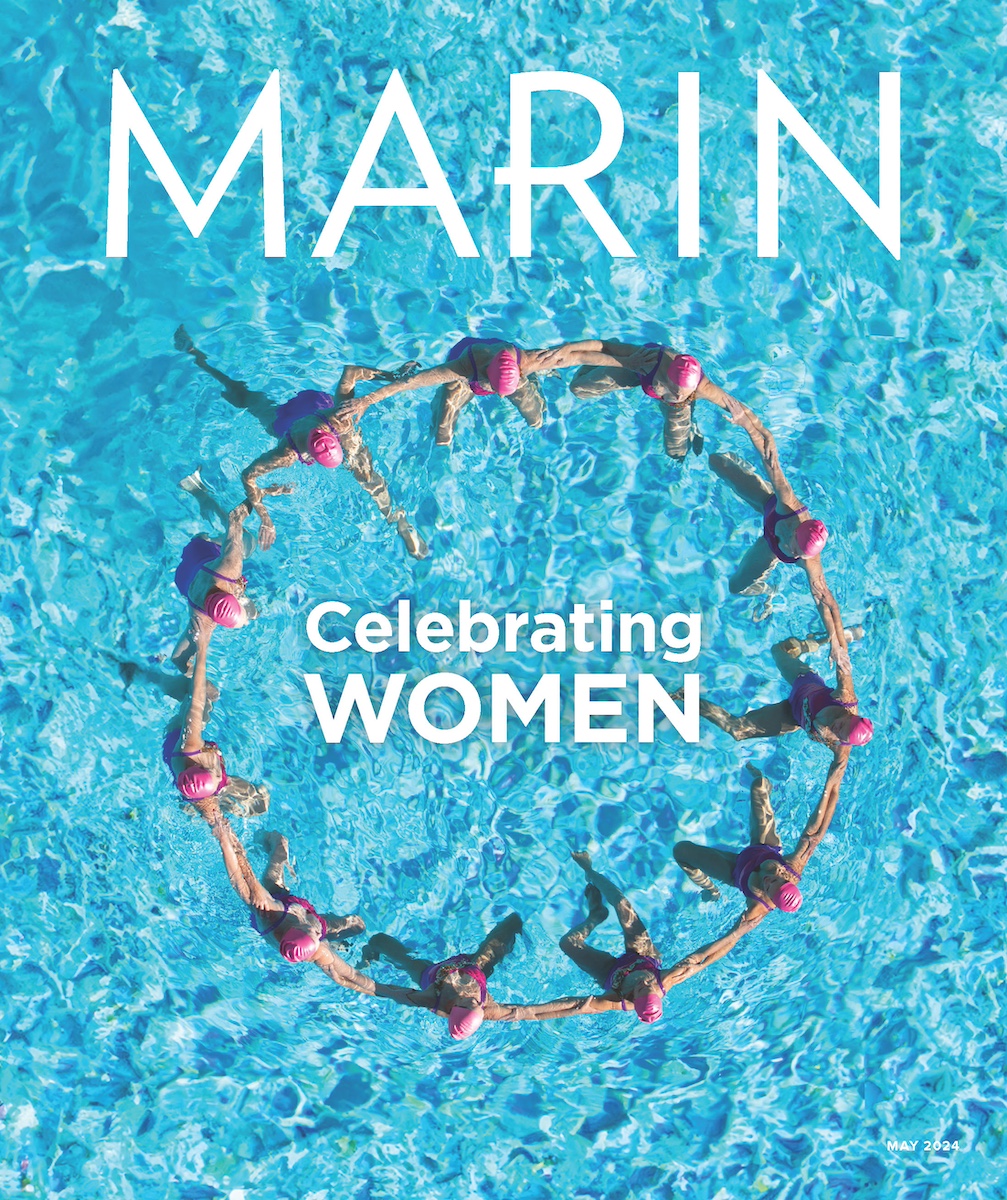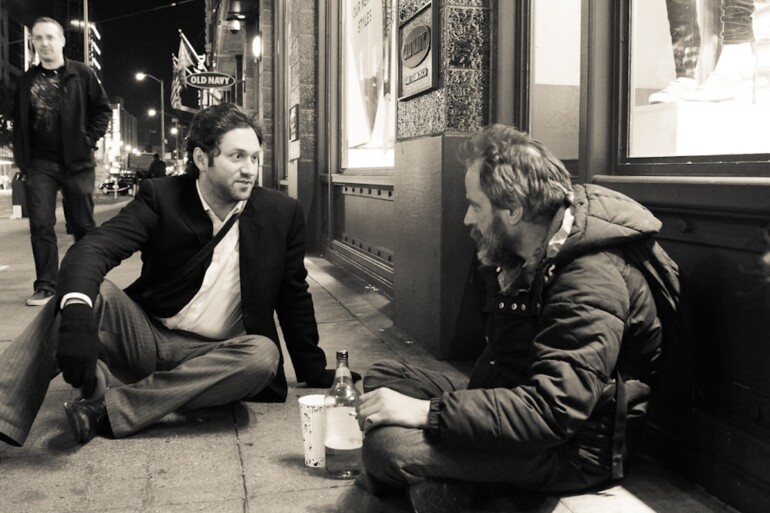A few years ago, the New York City Rescue Mission staged an experiment. They had several people dress up to “look homeless,” as unsuspecting members of their families walked by. In each instance, not a single person recognized their own son or daughter, brother or sister, mother or father, or husband or wife.
Would you recognize your own loved one on the streets?
Probably not: neuroscientists at Princeton and Duke have found that the part of our brains that activates when we see a person does not activate when we see a person experiencing homelessness. When we walk by, we tend to see problems to be solved, not people to be loved.
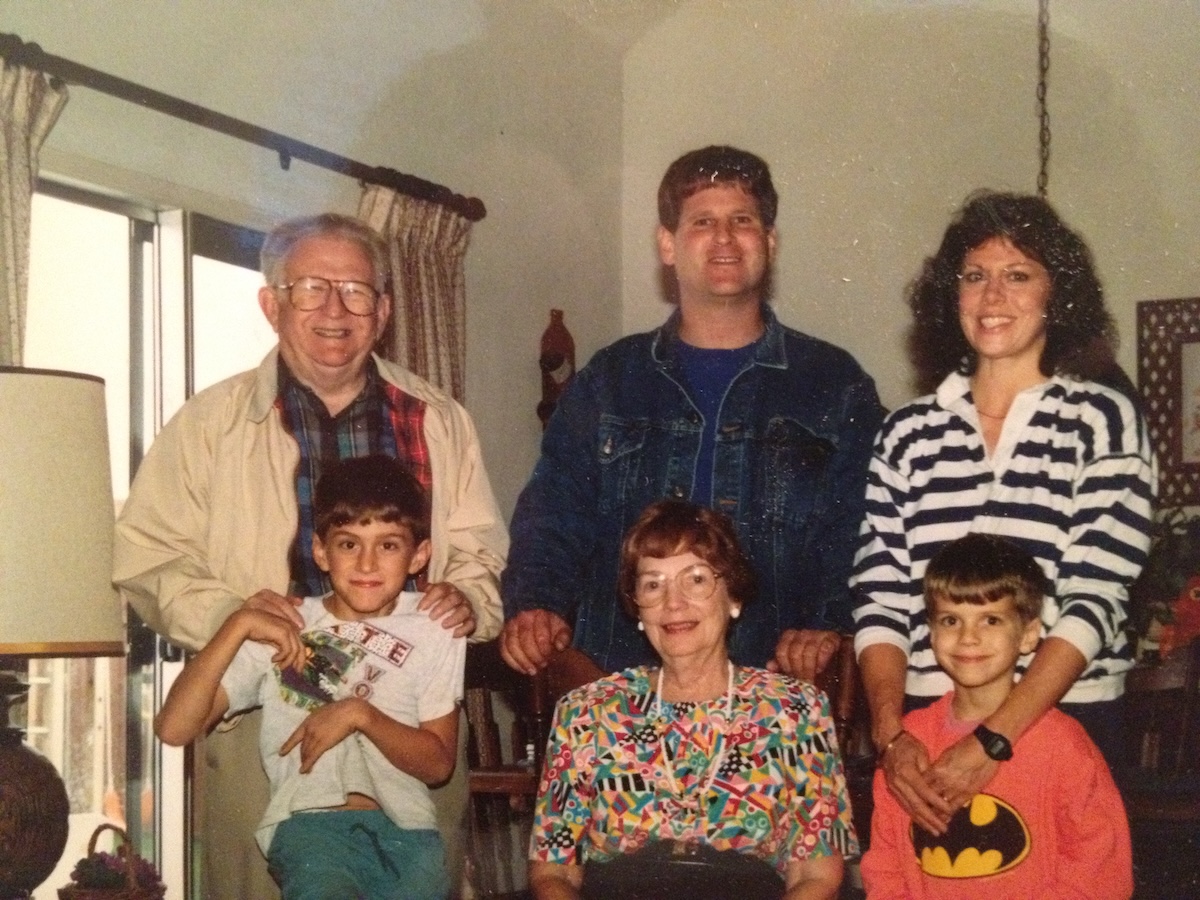
For 30 years, my Uncle Mark was one of the 582,462 Americans who sleep on the streets each night, bouncing between transitional housing, shelters and the streets of Santa Cruz, California. But I never looked at Mark as a “homeless man” because he was my beloved uncle, who remembered every birthday and was the guest of honor at Thanksgiving and Christmas.
After Uncle Mark was found deceased at the age of 50, I started wondering about the stories of the people that I, too, walked by. And so, in 2014, I stopped walking by and I began listening.
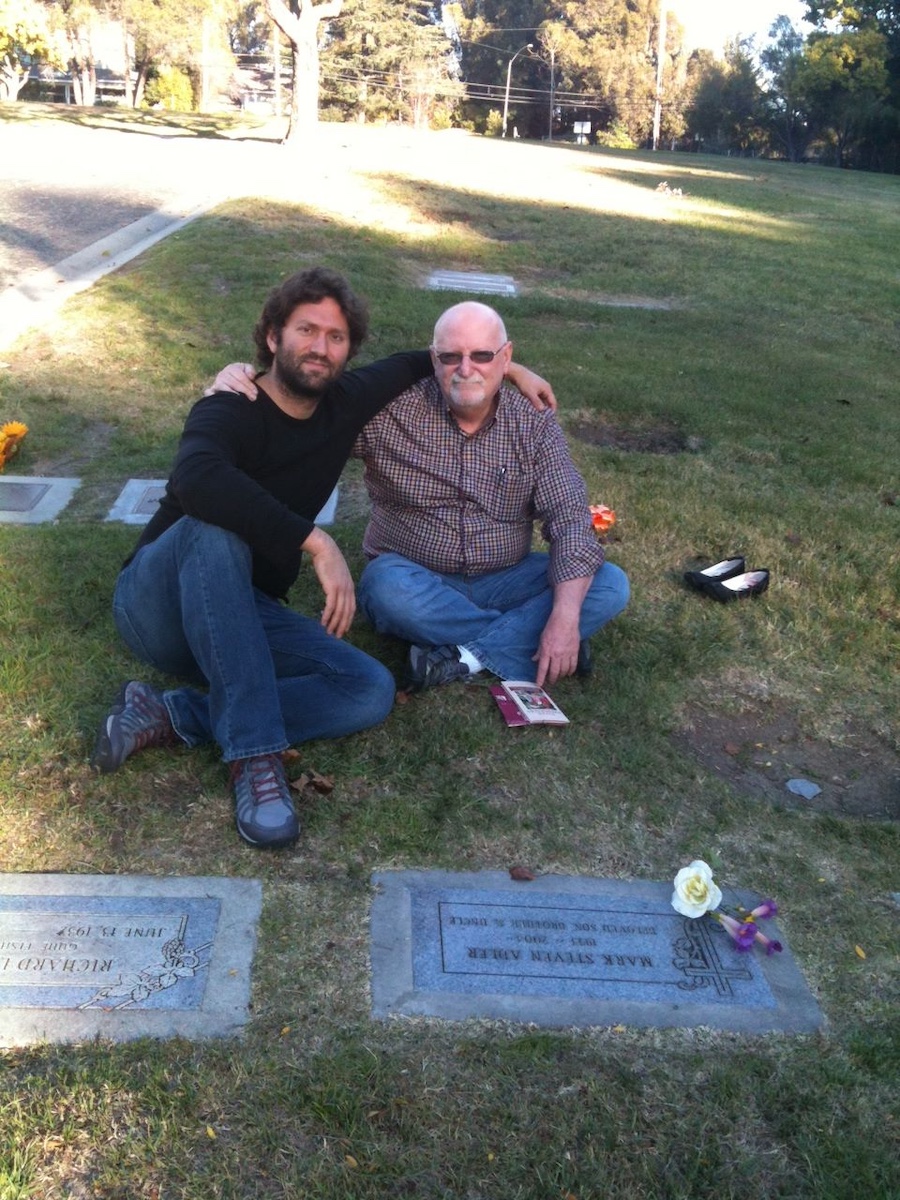
I spent a year getting to know my unhoused neighbors as neighbors. During that time, I worked with 24 unhoused neighbors who courageously volunteered to participate in the storytelling project I created called Homeless GoPro. I invited participants to “narrate your experience of life on the streets by wearing a wearable camera around your chest for an hour or two.”
I received dozens of hours of heartbreaking footage, in which my new unhoused friends were constantly scorned, talked down to, pitied and mostly ignored. In one of the video clips, I heard something that changed my life: “I never realized I was homeless when I lost my housing, only when I lost my family and friends.”
“I never realized I was homeless when I lost my housing, only when I lost my family and friends.” This made sense to me, but I had never heard anything like it from any government agency or homeless service provider. So one day in December 2014, I decided to take a walk down Market Street in San Francisco, go up to everyone I saw who was visibly homeless, and ask a simple question: “do you have any loved ones you would like to reconnect with?”
That’s how I met Jeffrey, who said he hadn’t seen his family in 22 years. I recorded a short video message from Jeffrey to his sister. I went home, and found a Facebook group connected to his hometown. I posted the video there with a short note. Within one hour, hundreds of people had liked and commented on the post: “I work in construction, does he need a job?” “I work at the congressman’s office, does he need health care?” Within 20 minutes, his sister was tagged. We got on the phone the next day. She told me that Jeffrey had been a missing person for 12 years.
Broad daylight. Downtown San Francisco. A few days before Christmas. Within a few days, they reconnected on a phone call. Within a few months, they reconnected in person. And I started doing this work full-time, because I knew Jeffrey wasn’t the only one, and this shouldn’t be happening.
I created a nonprofit called Miracle Messages to tackle what my team and I have come to call “relational poverty” as an overlooked, deadly form of poverty on the streets. And to embrace our unhoused neighbors as neighbors: as the brothers and sisters, friends and classmates, aunts and uncles that they are. It is our belief that no one should go through homelessness alone and no one should feel helpless in this human rights crisis in our communities.
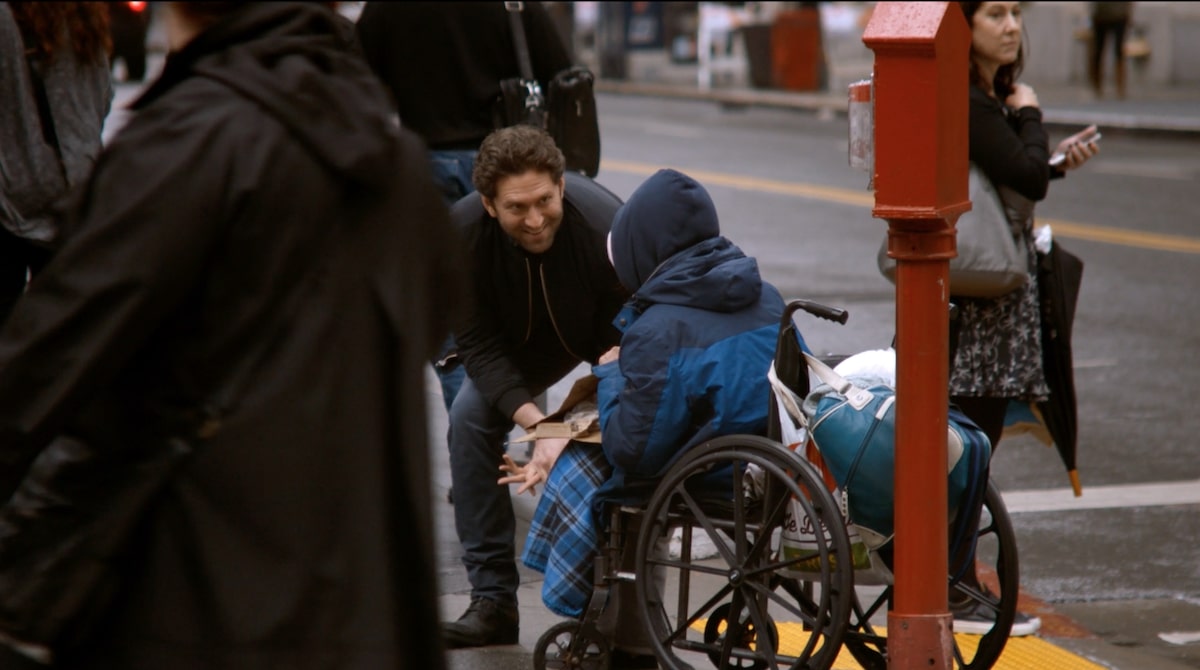
Miracle Messages helps people experiencing homelessness rebuild their social support systems and financial security. The approach is simple, cost effective, humane and scalable.
Three core programs are offered: family reunification services, in which our community of volunteer digital detectives have reunited over 800 unhoused individuals with their long-lost loved ones. A phone buddy program, in which our global community of volunteer friends have logged over 150,000 minutes of one-to-one phone calls and text messages with their unhoused friends. And direct cash transfers, in which we launched the first basic income pilot for people experiencing homelessness in the United States.
In our initial basic income pilot launched in December 2020, we distributed $500 a month for six months to 14 participants from our phone buddy program, nominated by their volunteer friends. Within six months, two-thirds of the unhoused recipients secured stable housing. They used the money better than we could have used it for them: most of the funds were spent on housing, food security, physical and mental health care, supporting loved ones and other essentials.
As a result of the success of that inaugural pilot, we’ve been able to expand our basic income program into a $2.1 million randomized control trial, led by researchers at USC and funded by Google.org and many other foundations and individuals. We are giving out $750 a month for 12 months to over 100 unhoused neighbors in Los Angeles, Oakland and San Francisco.
We have already witnessed thousands of miracles at Miracle Messages: tearful homecomings, second chances, a friend to talk to when there is no one else, and 66% of unhoused individuals getting stably housed through just six months of basic income. This work has transformed my understanding of homelessness and I believe it can inspire and empower others as well.
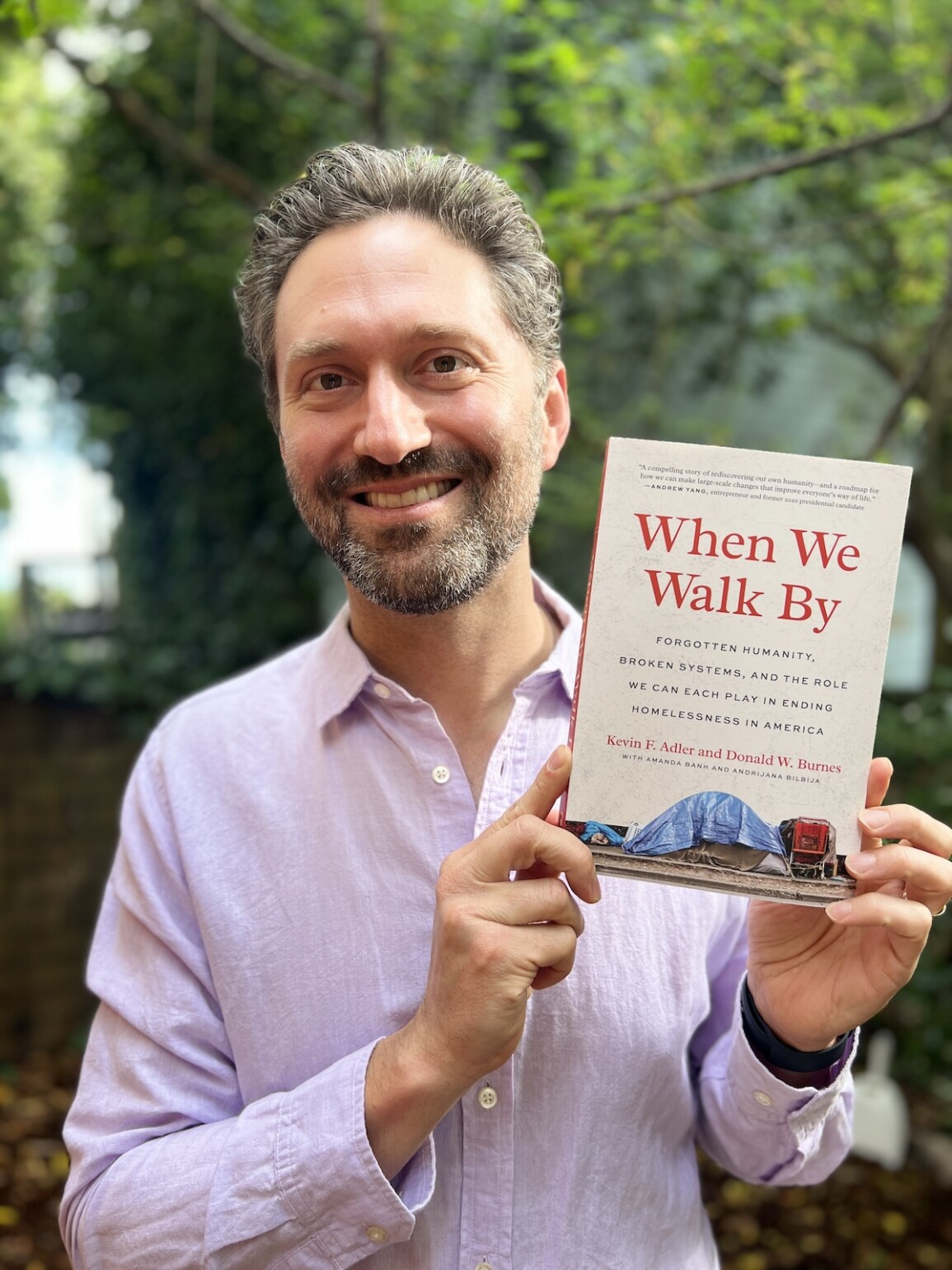
And so, I decided to write a book: When We Walk By: Forgotten Humanity, Broken Systems, and the Role We Can Each Play in Ending Homelessness in America, which was published a few months ago by North Atlantic Books, and was recently described as “a must-read for anyone interested in solving the problem of homelessness” by Publishers Weekly.
I hope you will read the book, or perhaps listen to it — I had to audition to read the audiobook, so I can assure you that my voice is not too jarring. (Or at least I might know the right people.)
But whether you check out a copy of When We Walk By or not, I hope you will take a moment to reflect on two simple questions:
- First, raise your hand if you care about the issue of homelessness. (Go ahead and raise your hand if you would like; I promise I am not watching, but it will make this moment more memorable, especially if you have a soon-to-be confused loved one nearby.)
- And second, raise your hand if you know someone who is currently experiencing homelessness — perhaps a friend, a family member, a neighbor or yourself.
When I give a talk and ask these two questions, the response is almost always the same: whether it is a corporate lunch and learn, a college classroom, or a civic club, nearly everyone raises their hand emphatically to the first question, and never more than about 5–10% of people are able to raise their hand to the second question. In my view, that disconnect is part of the problem.
To end homelessness in our communities, we have to get to know our unhoused neighbors as our neighbors: as the brothers and sisters, sons and daughters, fathers and mothers and the beloved uncles and aunts that they are. By “getting proximate” as Bryan Stevenson would put it, we might get close enough to recognize a bit of ourselves in their stories, and take action accordingly, including on the need for much more affordable housing in our neighborhoods.
Kevin F. Adler is the author of When We Walk By and founder of Miracle Messages.
